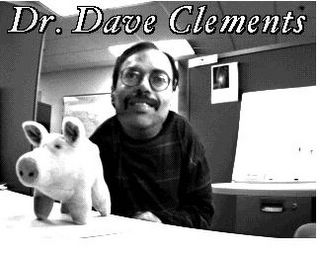Here There Be Monsters
Last night, I finally got around to watching Stephen King's Desperation. I'm always a little leery when a film or book needs to include the author's name in the title. After all, great books don't need that. Ever hear of "Moses' The Bible," or "Herman Melville's Moby Dick"? The title should lead to the author, not the other way around.
Anyway, back to the movie. I found the first hour quite good, the second quite bad, and the third quite boring. My favorite line from the first hour: "I'm gonna stick a pole through your mother and spin her till she catches fire!" Now, that was the kind of line I'd like to write.
Ron Perleman did a great job as the evil, possessed sheriff. Sadly, he disappeared after the first half of the movie, to be replaced by a much-less-convincingly possessed woman. One thought occurred to me, as it sprang again to my mind. The first time it occurred to me was in watching Mel Gibson's neo-Romanesque epic, "The Passion of the Christ." Why do we still associate physical ugliness with moral ugliness? Not that I want to rain on Perleman's acting gigs, but movies (and books) need to separate themselves from the notion that someone's physical appearance tells us anything significant about his or her state of mind, or sinfulness. Anyone remember Quasimodo?
Mr. King needs to raise his fiction above the stereotypical. I stopped reading his books in the 80s, for basically that reason. He writes formula, and formula only. The original ideas and characters of his first few novels--the whole notion of "horror in everyday life," has become subsumed by automatic writing. It's as if King had that weird typewriter from Tommyknockers kocking out his works page by page. Just as in "It" and numerous others, King sticks to the Hero's Journey a bit too literally. His novels are quests, in which an unlikely circle of friends must confront a horrible monster (or monsters).
At first, I thought the kid, David, was the hero on the journey last night. But the real hero proved to be the author character, who had to atone for past sins. Like the heroes in Campbell's book, the author character receives the call to adventure, at first refuses it, then makes the journey to the "inmost cave," which in this story was--literally--a cave! The boy, David, was not the hero, but rather the mentor character.
Ugly people everywhere, unite! Don't let lazy writers keep you down....
Subscribe to:
Post Comments (Atom)

No comments:
Post a Comment